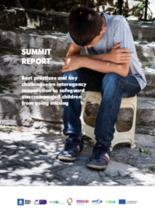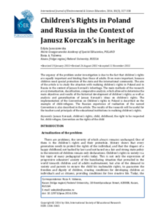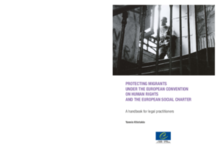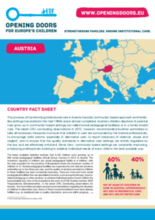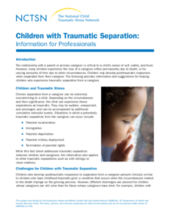Displaying 731 - 740 of 839
The objective of the project is to reduce the numbers of unaccompanied children who go missing. This project addresses how the issue of the disappearance of an unaccompanied child is tackled in different Member States and promotes promising strategies and behaviours related to the prevention and response to disappearances.
This article discusses how prevalence rates of child maltreatment (CM) can differ substantially between countries and ethnicities
This study reported that unaccompanied refugee children face greater challenges compared to their accompanied refugee counterparts.
The aim of this article is to study the situation on realizing children’s rights in Poland and in Russia in the context of Janusz Korczak’s principles.
This paper highlights the difficulties faced by foreign minors and how the gaps in law leave them undocumented, vulnerable and unable to access social services. This paper also discusses how South Africa’s approach to accompanied and unaccompanied foreign minor children provides no durable long term solutions for these children, effectively leaving them in a legal hole once they reach the age of majority.
This chapter discusses the practice of child circulation in Ghana.
This handbook, produced by the Directorate General of Human Rights and Rule of Law, is a practical tool for legal professionals from Council of Europe member states who wish to strengthen their skills in applying the European Convention on Human Rights and the case law of the European Court of Human Rights in their daily work.
This fact sheet highlights Austria’s process in transforming institutional care towards community-based and family-based systems.
This guidance from the National Child Traumatic Stress Network provides information and suggestions for helping children who experience traumatic separation from a caregiver.
This paper examines the notion of “unaccompanied and separated children” of Russia.

